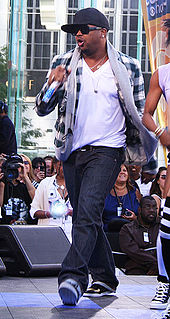A Quote by Susie Orbach
Emotional Literacy means being able to recognise what you are feeling, so that it doesn't interfere with thinking. It becomes another dimension to draw upon when making decisions or encountering situations. Emotional expression by contrast can mean being driven by emotions, so that it isn't possible to think. These two things are often confused, because we are still uncomfortable with the idea of the validity of feelings.
Quote Topics
Able
Another
Because
Becomes
Being
Confused
Contrast
Decisions
Dimension
Draw
Driven
Emotional
Emotional Expression
Emotional Literacy
Emotions
Expression
Feeling
Feelings
Idea
Interfere
Literacy
Making
Making Decisions
Mean
Means
Often
Possible
Recognise
Situations
Still
Things
Think
Thinking
Two
Two Things
Uncomfortable
Validity
Related Quotes
Emotional self-control is NOT the same as overcontrol, the stifling of all feeling and spontaneity....when such emotional suppression is chronic, it can impair thinking, hamper intellectual performance and interfere with smooth social interaction. By contrast, emotional competence implies we have a choice as to how we express our feelings.
I think the emotion that song carries makes it good. Because you have to produce around something - an emotional attachment and a feeling. The melody itself has a feeling in it. The keys, the tones, frequency, sonics, all of those have feelings in it. Like, it's the ghost within, the music itself. That's what makes the song even have a possibility of being great. The emotional connection. Because if you don't have that, I don't think you really have a song.
Psychiatrists declare that most of our fatigue derives from our mental and emotional attitudes... What kinds of emotional factors tire the sedentary (or sitting) worker? Joy? Contentment? No! Never! Boredom, resentment, a feeling of not being appreciated, a feeling of futility, hurry, anxiety, worry-those are the emotional factors that exhaust the sitting worker, make him susceptible to colds, reduce his output, and send him home with a nervous headache. Yes, we get tired because our emotions produce nervous tensions in the body.
I think hunger is a natural state of being for most people. I mean, hunger is a desire - and you don't only have physical hunger, you have emotional hunger. A lot of my hungers are, in fact, emotional. I think a lot of fat people's hungers are emotional. There are things we very much want, and it can be so difficult to satisfy those hungers. Yet we try. We try so hard.
Successful prime-time television of any genre produces some kind of emotional reaction in the viewers. There are a lot of different emotions to tap into. The emotion of the reward of discovery, the feeling of righteous anger, the feelings of pathos and sadness, or sentimentality of being moved by something.
Criticism does demand a certain kind of authority, but what about the authority of not really being sure what you think? What about the authority, the authenticity that comes from bringing all your intellectual, emotional and spiritual equipment to a piece of art or entertainment whilst still being uncertain and confused?




































